If you have noticed abnormalities in your urine and you’re worried it may be an indication of a medical condition, it would be wise to go for a urinalysis in Bakersfield. It won’t only disclose critical information about your current symptoms, but also help manage them.
What Is Urinalysis?
As the word itself reveals, urinalysis is a laboratory test that looks at a sample of your urine. It is used to detect and manage several disorders. Some of them include:
- Urinary Tract Infections (UTI)
- Kidney Disease
- Liver Disease
- Diabetes
The test involves checking the content, appearance, and concentration of urine. For instance, if someone is suffering from a urinary tract infection, their urine will have a cloudy appearance instead of crystal clear.
Wondering Where You Can Find Affordable Urinalysis in Bakersfield?
At Onsite Medical Services, we go to great lengths to ensure nothing disturbs your peace of mind. For that reason, we offer affordable urinalysis in Bakersfield, making it convenient for you to seek quality healthcare services.
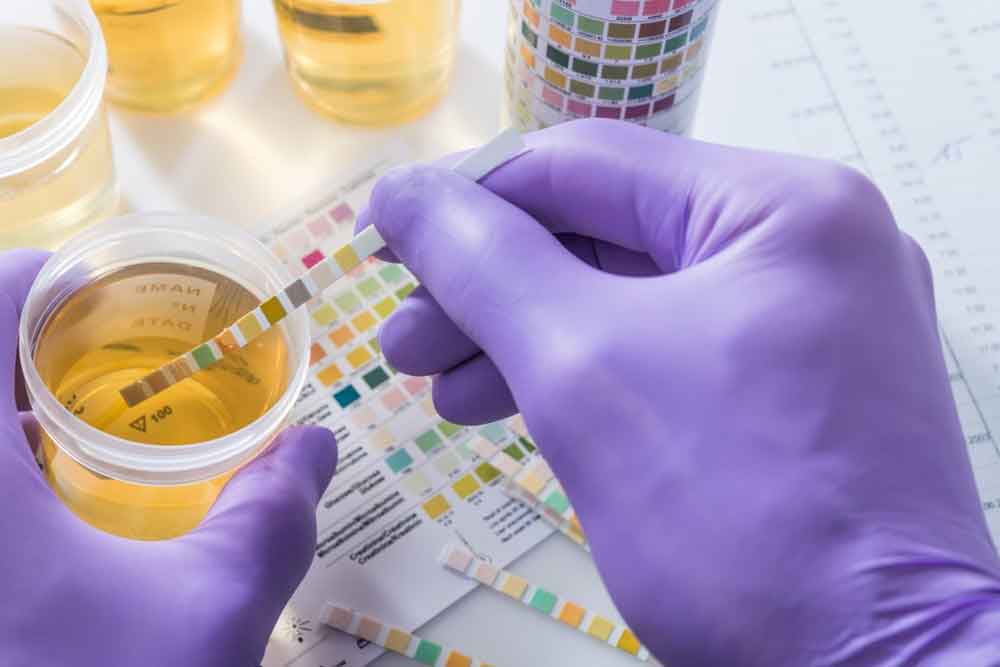
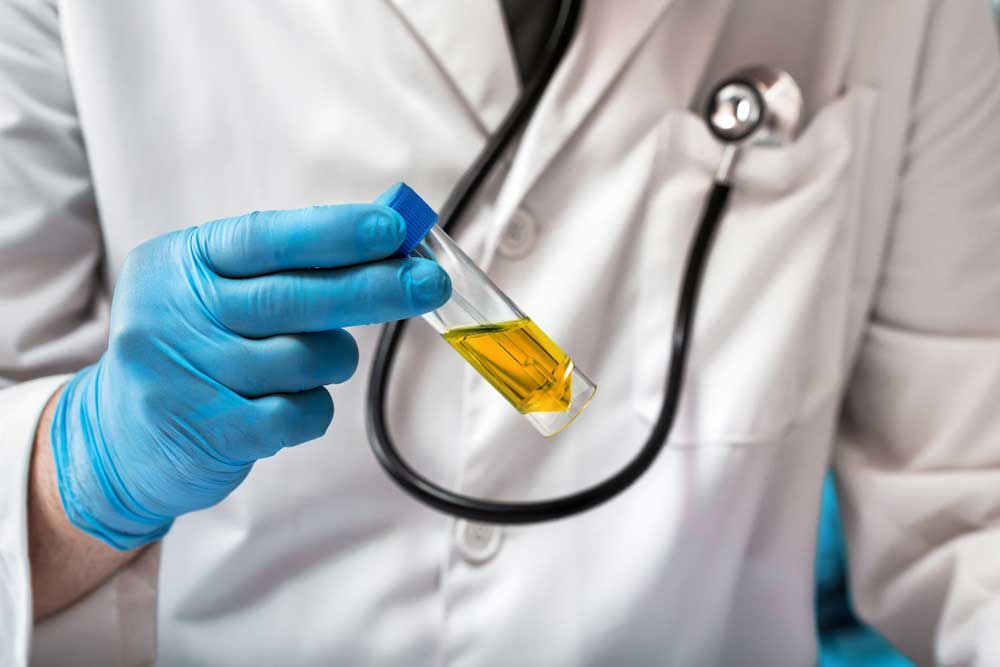
Purpose Of Urinalysis
As we’ve already mentioned before, a clinical urine test is conducted to identify various diseases in your body. However, that’s not the only purpose of the test.
It can be a part of your routine checkup too. Moreover, if you’re about to be admitted into a hospital for surgery, your doctor may want to test your urine. Some medical professionals also test your urine as a part of a pregnancy checkup.
How Does a Urinalysis Work?
There are three different ways to analyze urine, and a doctor might use all of them to test your urine.
Microscopic Exam
In the microscopic examination of urine sediment, a doctor looks at a few drops of your urine under a microscope. They do this to identify content that one usually cannot see with naked eyes. Some of those elements include:
- Red & white blood cells, which may be a sign of infection.
- Crystals, that may indicate kidney stones.
- Epithelial cells, that may be a symptom of a tumor.
- Bacteria and other infectious yeast.
Dipstick Test
Also known as a chemical test, in a dipstick test, your doctor dips a plastic stick into your sample. However, it’s not an ordinary stick. Instead, it has been treated by chemical, which causes the stick to change color, depending on the presence of certain substances. Usually, when doctors perform a dipstick test, they’re looking for:
Acidity (pH): The higher the pH level in your urine, the more amount of acid will be present in your urine. It may point towards a kidney or urinary tract disorder.
Concentration: The measure of concentration refers to how concentrated the particles in your urine will be. A higher concentration means you’re not drinking enough fluids.
Protein: It’s common for urine to have low levels of protein. So, that’s not a cause of concern. However, larger amounts may point towards a kidney problem.
Sugar: Usually, the amount of sugar present in urine is so low that it cannot be detected. But if your tests suggest otherwise, we might ask you to perform some follow-up tests to check for diabetes.
Ketones: Just like sugar, it’s almost impossible to detect ketones in your urine. And if we do, we’ll ask to administer follow-up tests.
Bilirubin: When parts of your red blood cells break down, they produce orange-yellow pigments, called Bilirubin. And if they’re detected in your urine, it means your liver might be damaged.
Visual Examination
For the visual exam, your urine will be checked for its color and clarity. Normal urine color ranges from clear to dark yellow. However, if your urine has one of the following abnormalities, it can imply kidney problems.
- Dark urine
- Blood in urine
- Cloudy urine
- Foamy urine
Apart from these three, there is another method, known as the urine culture test. Its objective is to check for germs or bacteria in your urine.
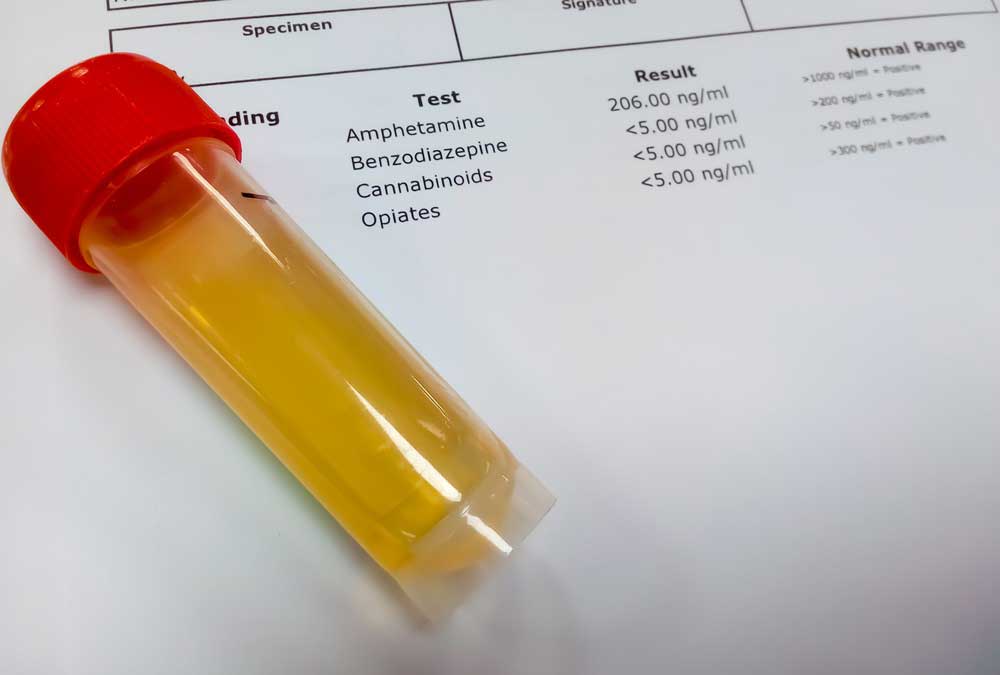
Preparing For a Urinalysis
Before appearing for the urinalysis with reflex culture test, make sure to drink enough water, so you won’t have trouble giving a sample. With that said, don’t drink too much. Otherwise, it may impact your urinalysis dipstick test results.
For instance, if you drink 8 glasses of water every day, then on the day of the test, drink 9 or 10 glasses.
And it doesn’t only have to be water. It can be any fluid, such as milk or juice, as long as it’s not prohibited by your doctor. There’s no need to fast or change your diet before appearing for the test.
Additionally, if you’re taking any medications, remember to tell our medical professionals about them. The supplements include:
- Vitamin C supplements
- Riboflavin
- Methocarbamol
- Metronidazole
- Laxatives
What The Results Reveal
After conducting an in-depth assessment of your urine sample, we’ll let you know about the results.
If they appear abnormal and you’ve previously been diagnosed with kidney problems, urinary infections, or other related conditions, we may ask to perform additional tests.
If they appear normal and you haven’t been experiencing any other symptoms, we won’t ask for follow-up tests.
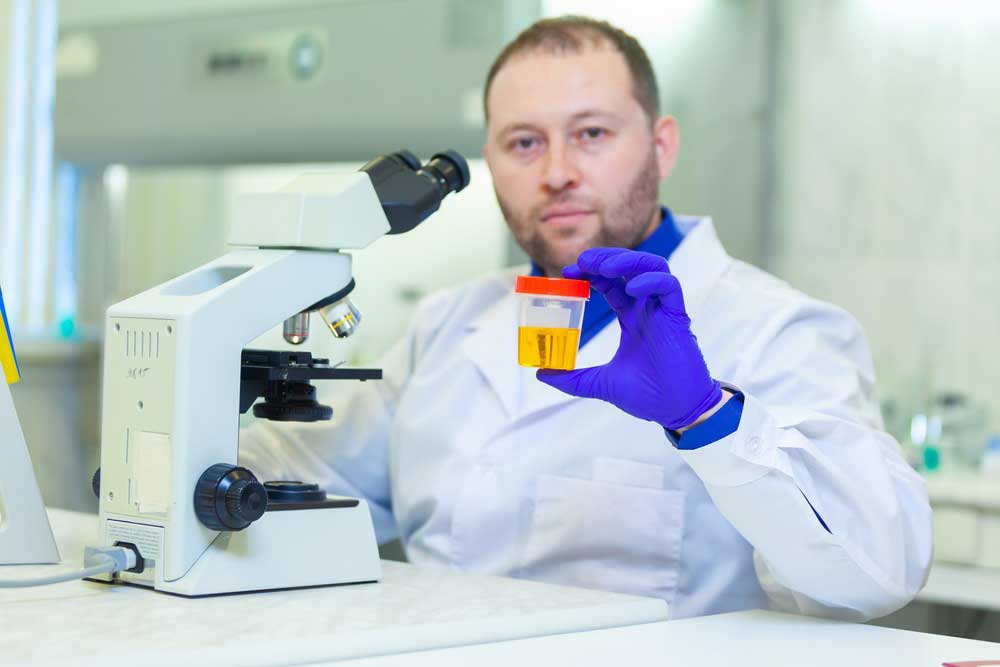
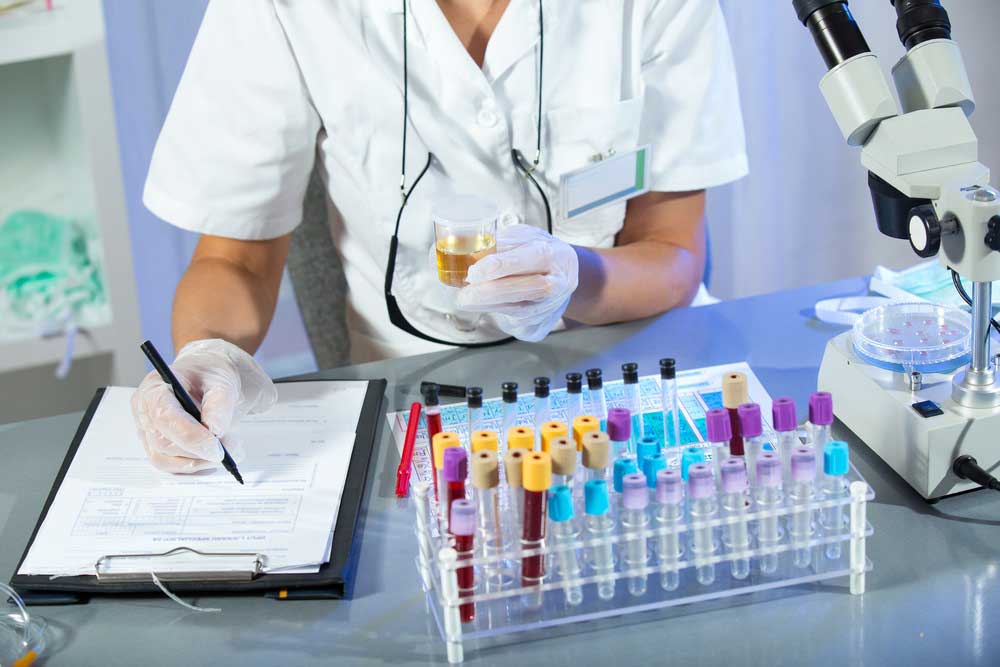
Ready To Conduct a Urinalysis?
While administering a clinical urine test can identify several underlying issues, it doesn’t provide a definite diagnosis. That’s why we recommend telling your symptoms in detail, so that we can help accordingly.
At Onsite Medical Services, we’ve built a strong reputation by providing quality urine examination services in Bakersfield right at your doorstep. We’ll take proper care of you anywhere, anytime you need us.

